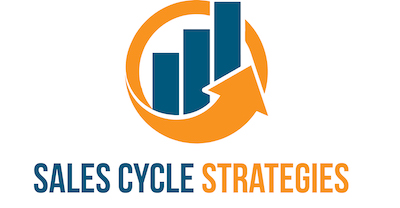Asking Probing Questions in sales:
A practical guide
No one likes getting probed, especially by a salesperson. Who came up with the term ‘probing’ questions anyway? The words conjure up uncomfortable feelings of going to the doctor’s office or being abducted by aliens. Yuck !!

My apologies for the digression, let’s move on to a more serious discussion.
What are sales probing questions? Here’s a good starting definition from study.com
What are Probing Sales Questions?

Asking Probing Questions, a practical application.
ok, so we have our typical definition above. So I am trying to make more sales for my company. I am trying to qualify a prospect, pitch a demo, or deliver a proposal. Do I just run out and start asking these questions, to elicit a (per the definition), a profound answer.
The answer lies in a few practical applications. Ready for some takeaway value? Let’s continue.
First, let’s start with what NOT to do. Below are questions that will kill the buying process
Here are some examples of bad sales probing questions
What keeps you up at night?
What are your pain points?
What’s your budget for this year?
What are your current business priorities?
What are your current needs?
What is your budget authority?
What’s wrong with these questions? They are generic and tired (they get asked all the time), and they are typically the tell-tale sign of a lazy salesperson. It also tends to waste a prospect’s time.
Before we start asking questions, let’s take a step back and discuss some basic best practices to follow.
Research your prospect first.
Sales representatives should research their prospects before asking probing sales questions. This can be done by visiting the company’s website, reading industry news articles, or connecting with the prospect on social media. By doing this research, sales reps will have a better understanding of the prospect’s business and can tailor their sales questions accordingly.
Sales Questions asked should always start with referencing one or more pieces of information about the prospect that demonstrate that you have taken the time to research them.
As example:
“I noticed on your website that you just added a new product line. How is that going for you?”
“I read in Forbes that you are thinking about expanding your operations into Europe. What are your thoughts on that?”
Ask questions in the Early Stages of the Sales Process
Prospects are typically more open to answering sales questions at the beginning of the sales cycle and will become more guarded as you move thru the buying process and start selling.
When sales representatives are just starting to build a relationship with a prospect, they should focus on asking sales questions that will help them understand the prospect’s needs. These needs could be related to the product or service being sold, or they could be related to the prospect’s business in general.
Some examples of good sales probing questions to ask in the early stages of the sales process include:
What are your thoughts on our product/service?
How do you see our product/service benefiting your business?
What challenges are you currently facing that our product/service could help with?
Consider this simple framework when asking probing sales questions
Categorize your questions into three basic types:
Open-ended questions
Open-ended questions are questions that cannot be answered with a “yes” or “no” response or with a very brief answer. Open-ended questions require more thought and usually result in longer answers.
Close ended questions.
A closed-ended probing question is a question that can be answered with a “yes” or “no” response, or with a very brief answer. Closed-ended questions are typically used to gather specific information from the prospect and usually result in shorter answers.
A/B questions?
A/B questions are questions that have more than one possible answer. These types of questions can be used to gather multiple pieces of information from the prospect, and usually result in longer answers. A/B questions can be used to sort out a prospect’s leading preference on a topic.
The above question framework is easy to use as you are trying to navigate thru a discovery call, demo, or a sales pitch.
Takeaway: How you ask the question is more important than the topic you are asking about.
Consider each question a mini-topic, then create smooth transitions across topics
When asking questions be ready to ask follow-up questions of the prospect. A probing question is not meant to be a dead-end, but rather the start of a conversation. If a prospect starts giving you information that is not related to the question you asked, take the opportunity to ask a follow-up question about that new topic.

Remember that your job is to gain enough information about the prospect’s business to determine if there is a good fit for your product or service. If you get stuck on one topic, you might miss some critical pieces of information that you will need later on in the buying process.
Some Common Mistakes
Also, Be aware of some common mistakes sales teams make when asking Probing Sales Questions
1. Asking too many questions at once
2. Sales rep not giving the prospect time to answer
3. Not listening to the prospect’s answers
4. Asking leading questions
5. Asking questions that have already been answered
6. Failing to ask follow-up questions
In Summary
Asking questions is a critical part of sales conversations, but it’s important to do it in a way that doesn’t make the prospect feel like they’re being interrogated. Be sure to ask questions that are relevant to the product or service you’re selling, and as sales professionals are prepared to follow up on any new information the prospect gives you.
If you have any questions about how to ask probing sales questions, or if you’d like more information about our services, please don’t hesitate to contact us. We are happy to schedule a call to discuss more.




